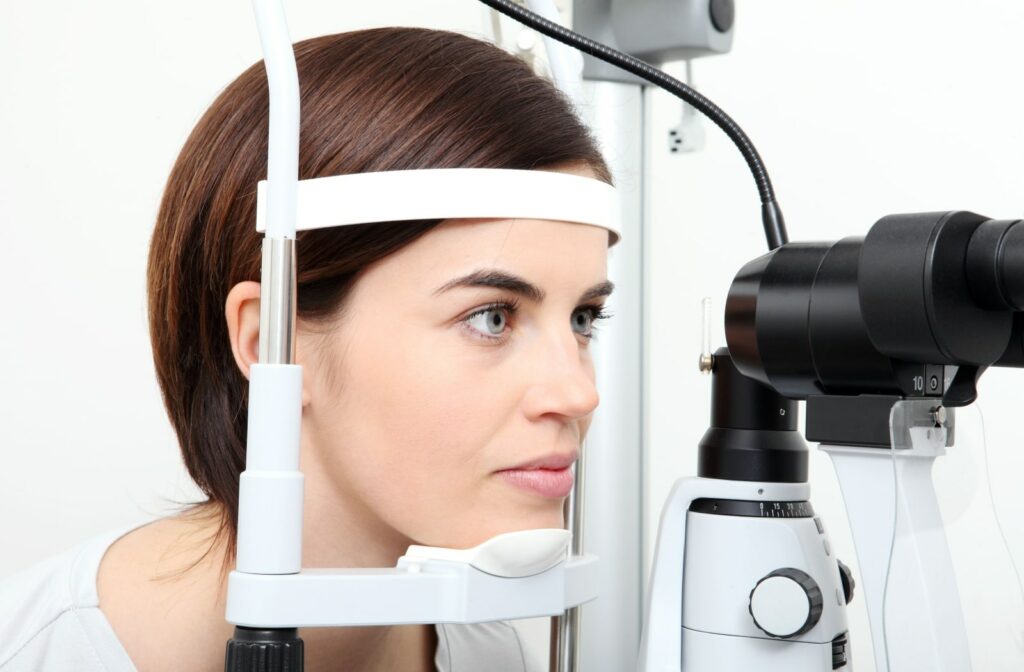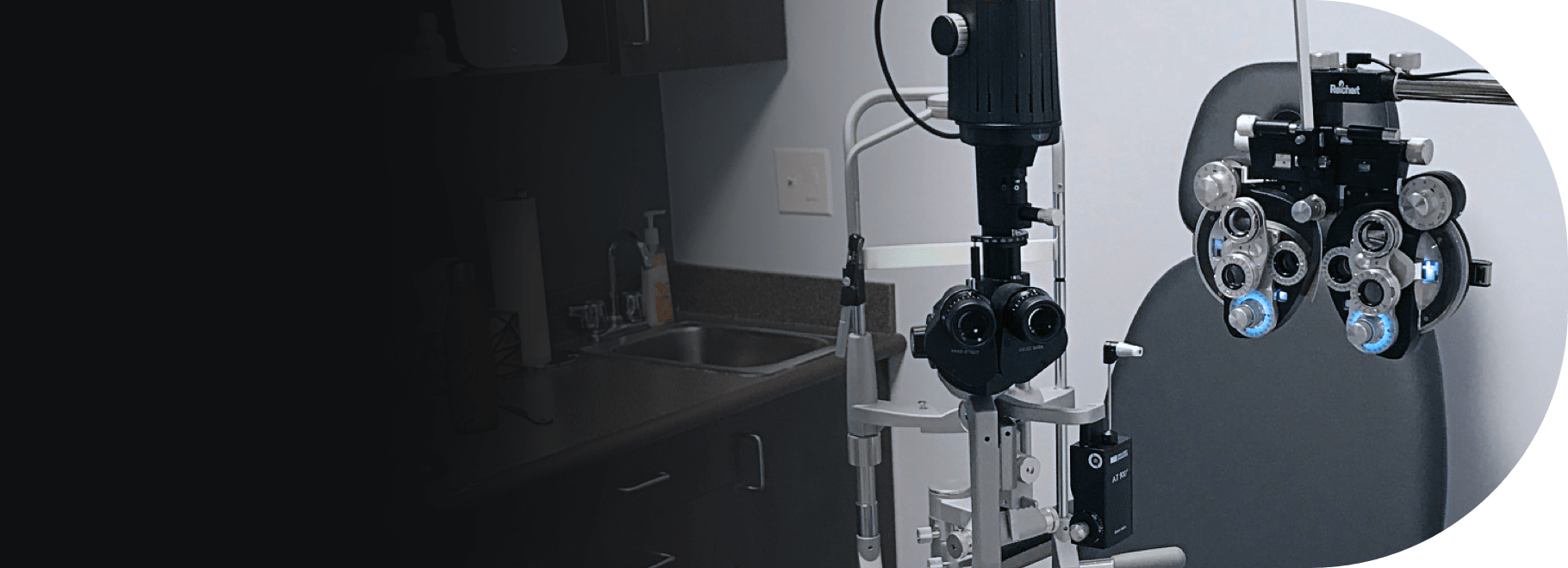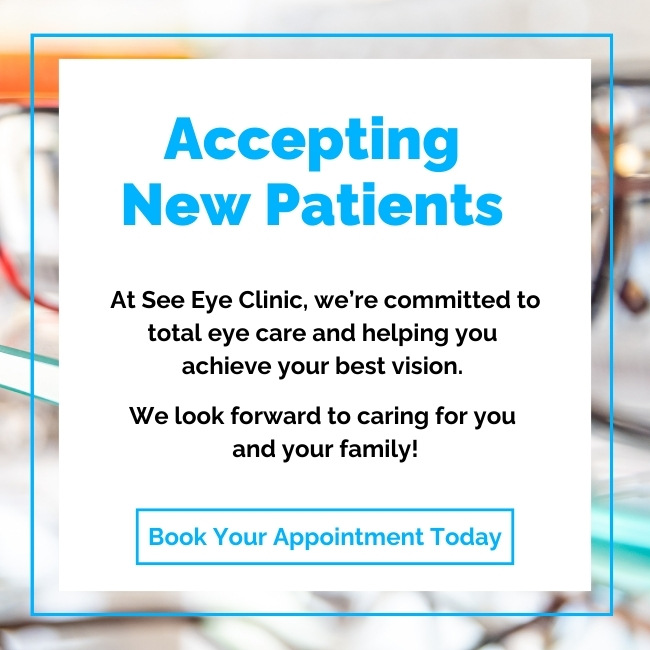In a world where screens dominate our landscapes and daily lives, taking care of our eyesight has never been more critical. Regular eye exams are essential to maintaining eye health, yet many adults neglect this aspect of their healthcare routine.
It is recommended that people between the ages of 18 and 64 have eye exams once every 2 years and as recommended when they are over 65.
The Importance of Eye Exams
Eye exams do more than determine whether you need glasses or contact lenses. They are crucial in detecting early signs of eye conditions such as glaucoma, cataracts and macular degeneration. Beyond eye health, optometrists can identify symptoms of diseases such as diabetes and hypertension during an eye exam, thanks to the revealing nature of blood vessels and nerves in the eyes.
Moreover, eye exams are essential in tracking changes in your vision over time. Many adults experience subtle changes in their eyesight that may go unnoticed until it becomes a more significant issue. With regular eye exams, these changes can be caught early on and managed effectively.
When to Schedule Your Eye Exam
If you haven’t already incorporated eye health into your healthcare regimen, it’s never too late to start. Adults who have not experienced vision problems should schedule their first eye exam as soon as possible to establish a baseline of their eye health. This baseline will help optometrists detect any changes or abnormalities during future exams.
Moreover, individuals with a family history of eye diseases or those diagnosed with diabetes should schedule their eye exam right away to monitor any potential risks.
General Guidelines for Eye Exam Frequency
The Canadian Association of Optometrists provides these general guidelines for when you should get your eyes examined:
- Ages 18 to 64: Individuals in this age group should aim for an eye exam every 2 years. However, if you wear contact lenses, have a family history of eye disease, have a condition that affects eye health, such as diabetes, or have been diagnosed with an eye condition in the past, annual exams may be advised.
- Ages 65 and older: It’s recommended that people 65 and older schedule an eye exam annually. Aging increases the risk for several eye diseases, including cataracts, macular degeneration and glaucoma. Early detection through regular check-ups can lead to more effective treatment and preservation of vision.
It’s important to note that these guidelines are for individuals with no symptoms or known eye conditions. If you experience any changes in your vision, such as blurry vision, eye pain, flashes of light, or sudden loss of vision, you should see an eye care professional immediately, regardless of your last exam.
Reasons Why You Might Need More Frequent Exams
Certain conditions and circumstances warrant more frequent eye examinations, including:
- Pregnancy: Hormonal changes during pregnancy can affect vision, making getting an eye exam during pregnancy and after giving birth essential.
- High-risk occupations: Individuals who work in jobs that require intense visual focus, such as computer programming or driving, may benefit from more frequent eye exams. Regular check-ups can help identify any vision issues that may impact your work.
- Existing eye conditions: Individuals with conditions like diabetes, high blood pressure, or a history of eye diseases may need more frequent exams to monitor vision and eye health changes.
- Family history: If you have a family history of eye diseases such as glaucoma or macular degeneration, regular screenings can help detect issues early on.
- Workplace environment: Jobs that strain the eyes or expose workers to hazardous materials might necessitate more frequent eye care.
- Vision changes: Experiencing sudden vision changes, such as blurriness, difficulty seeing at night, or flashes of light, should prompt an immediate visit to your optometrist.
Key Takeaways
Regular eye exams are vital for detecting diseases early on, correcting vision problems and safeguarding the overall health of your eyes. Adhering to the recommended guidelines for eye exams is a crucial step in preserving your vision.
However, individual needs may vary, so it’s essential to consult with your eye care professional to determine the best schedule for you. By prioritizing your eye health and making regular exams a part of your healthcare regimen, you can protect your vision for years to come.
When to See an Eye Care Professional
If you’re due for an eye exam or have concerns about your vision or eye health, don’t wait. Book an appointment at See Eye Clinic today. Our team is dedicated to providing comprehensive eye care and helping you maintain optimal eye health. Take the first step towards safeguarding your vision—your eyes will thank you.
When it comes to eye health, prevention is key. By scheduling regular eye exams, you’re protecting your eyes and contributing to your overall well-being.




















